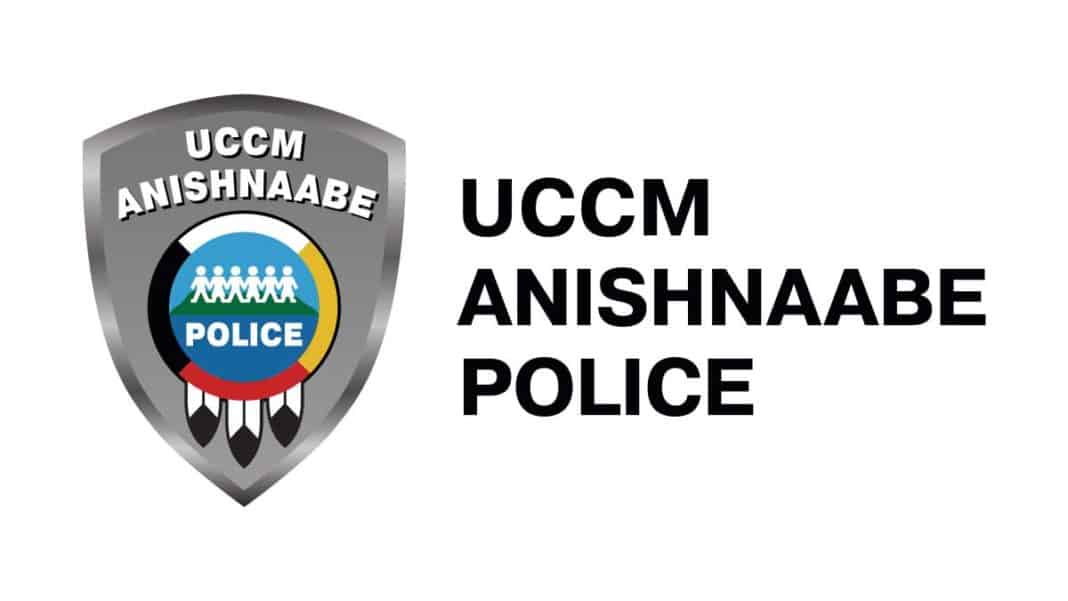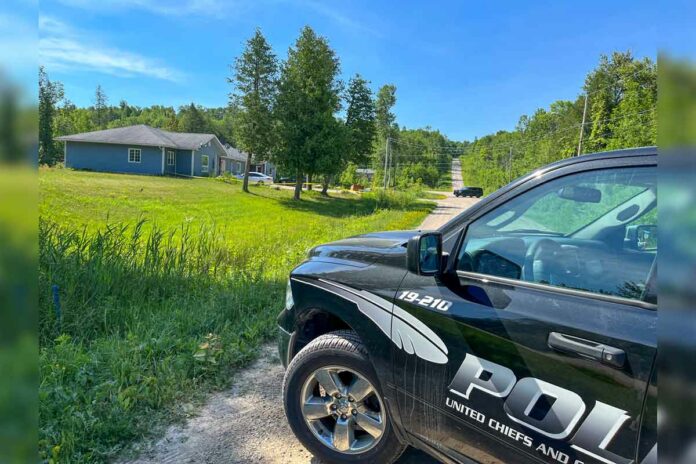Program seeks to prevent domestic violence before it starts
M’CHIGEENG — After five years of early intervention work aimed at preventing intimate partner violence (IPV) in Anishnaabe communities across Manitoulin Island, the UCCM Anishnaabe Police Service is calling on the federal and provincial governments to permanently fund its Lighting the Fire Within program.
Originally launched in 2018 with a $1 million investment from Women and Gender Equality Canada (WAGE), the program was built to address the roots of IPV through trauma-informed, culturally grounded, community-first approaches. But with the original funding expired, UCCM Police say the work can’t stop now.
“The Lighting the Fire Within programming helped within our communities and it’s unfortunate that the funding has stopped,” said UCCM Police Chief James Killeen. “We want to keep a good thing going, and we know that this has had positive impacts—not just within our community, but within our own police service—and we want to see that success continue.”
| Read our related story: |
| • Coalition Against Domestic Violence hosts Women’s Wellness Day in Whitefish River First Nation |
The program is active across the six First Nations UCCM serves—M’Chigeeng, Aundeck Omni Kaning, Sheguiandah, Whitefish River, Sheshegwaning, and Zhiibaahaasing—and was designed to address domestic conflict before it becomes criminal.
“We looked at our domestic violence call stats and saw patterns—couples we were visiting repeatedly, verbal fights that hadn’t escalated yet,” said Chief Killeen. “The idea was, instead of waiting for violence, we’d give them tools. Anger management. Parenting support. Addiction counselling. A toolkit to cope, heal, and change—before the justice system got involved.”
For Police Chief Killeen, who’s spent nearly three decades in policing, the program marks a necessary shift away from reactive models that don’t serve communities or officers.
“If you’re doing the same thing over and over again and expecting a different result, it’s not going to happen without significant changes,” he said. “Lighting the Fire Within is that change.”
At its heart, the program is about prevention—not punishment. People experiencing substance use, anger, or family trauma are offered support voluntarily. Elders provide cultural teachings. Trauma-informed experts from across Canada and the US have trained UCCM officers in how to deescalate, listen, and connect with community members without criminalizing them.
“There’s no manual for parenting, no quick fix for trauma,” said Police Chief Killeen. “But we’ve seen that if you offer real tools, people will use them. You sit down with them, not just to arrest, but to help. That’s what makes a difference.”
Police Chief Killeen recounted a story where he responded to a school bus hit by an impaired driver. Kids were screaming and traumatized. Instead of escalating the situation, he took off his vest, sat down on the ground, and sang with them until they calmed.
“They don’t remember the arrest. They remember that I sat on the floor with them, that I made them feel safe,” he told The Expositor. “That’s what policing should be.”
Youth programming is also a cornerstone of Lighting the Fire Within. Through the Sport to Life and Youth Summer Camps, UCCM officers play alongside local youth, mentor them, and foster long-term trust.
“When I was a kid, our sport coaches were police officers and firefighters. They were an intrinsic part of the community,” said Police Chief Killeen. “Now, we’ve got kids who started as campers leading these camps and asking, ‘How do I become a police officer?’ That’s the future of policing—positive interactions, mentorship, connection.”
Crucially, all UCCM officers—regardless of heritage—undergo cultural safety training, including First Nations officers who may have been disconnected from their roots. Police Chief Killeen, himself of Haudenosaunee (Mohawk) and Irish descent, has participated in every training.
“Every officer in our service, Indigenous or not, goes through cultural training. We can’t protect communities we don’t understand. I tell every person I interact with—victim or accused—the same thing: ‘My duty is to protect life. If you want help, I’m here. My goal is to keep you out of the system, not stuck in it.’”
“Eventually, I want to see you out of the drug scene. I want you to not have information to give. I want you free,” Police Chief Killeen went onto say.
Director of Corporate Services Taylor Sayers emphasized that Lighting the Fire Within aligns with the community-led vision of First Nation policing.
“The initiative was designed to equip law enforcement with the tools and knowledge needed to better serve communities by integrating cultural teachings, trauma-informed practices and strategic partnerships that enhance safety,” she said.
Unlike provincial and federal forces, First Nation policing is proactive by design. Police Chief Killeen called the difference “night and day” saying that he hopes other non-Indigenous police services might take a page from the book of what the UCCM Police Service is trying to do.
“There have been absolutely horrific incidents in Sudbury and across Ontario in the last few years that ended in tragedy,” he said, referring to the 2023 Sault Ste. Marie murder-suicide involving three children and two adults. “We are trying to prevent that kind of violence from ever taking root in our communities.”
To that end, UCCM is asking for additional financial support in upcoming negotiations with Public Safety Canada and Ontario’s Ministry of the Solicitor General. Currently, the service receives 52 percent of its funding federally and 48 per cent provincially—but that covers only core operations. The program’s continuation depends on new investment.
“Our communities want it. Our employees want it. We know how important it is,” said Director Sayers. “We’re in active talks to renew our agreement and expand what we know works.”
At a recent conference in Toronto, Lighting the Fire Within was held up as a model for early intervention and Indigenous-led solutions. Attendees included First Nation police services from Akwesasne, Wikwemikong, RAMA, Six Nations, Tsuut’ina, Lac Seul, and the Anishinabek Police Service, alongside municipal and provincial forces from Niagara, Toronto, Windsor, London, and the OPP. Trillium Health Partners and Victim Services Toronto also shared insights.
For Police Chief Killeen, the vision remains clear—and deeply local.
“In a perfect world, I’d have five to 10 people from each of our communities here on Manitoulin Island join our police service,” he said. “Until then, we’ll keep lighting the fire—within ourselves, and within the communities we serve.”





